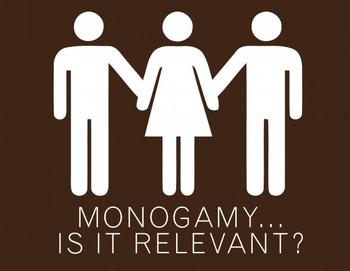 William Tucker, the author of Marriage and Civilization: How Monogamy Made Us Human
William Tucker, the author of Marriage and Civilization: How Monogamy Made Us Human, quotes extensively from Joseph Henrich of the University of British Columbia, Robert Boyd of UCLA , and Peter Richerson of UC Davis, from a published article entitled “The Puzzle of Monogamous Marriage.” The article first notes the following paradox:
The anthropological record indicates that approximately 85 per cent of human societies have permitted men to have more than one wife (polygynous marriage), and both empirical and evolutionary considerations suggest that large absolute differences in wealth should favour more polygynous marriages. Yet, monogamous marriage has spread across Europe, and more recently across the globe, even as absolute wealth differences have expanded.
The authors contend that
norms and institutions that compose the modern package of monogamous marriage have been favoured by cultural evolution because of their group-beneficial effects—promoting success in inter-group competition. In suppressing intrasexual competition and reducing the size of the pool of unmarried men, normative monogamy reduces crime rates, including rape, murder, assault, robbery and fraud, as well as decreasing personal abuses.
By assuaging the competition for younger brides, normative monogamy decreases (i) the spousal age gap, (ii) fertility, and (iii) gender inequality. By shifting male efforts from seeking wives to paternal investment, normative monogamy increases savings, child investment and economic productivity. . . . Polygynous societies engage in more warfare.
According to the authors,
The 15 per cent or so of societies in the anthropological record with monogamous marriage fall into two disparate categories: (i) small-scale societies inhabiting marginal environments with little status distinctions among males [i.e. hunter-gatherers] and (ii) some of history’s largest and most successful ancient societies.
Tucker explains what this means:
In other words , Western European, American, and East Asian societies live in relative peace and prosperity because they honor and enforce monogamous marriage, as did the earliest human societies . Meanwhile, the reason other societies remain relatively poor and plagued by internal violence is because they have reverted to polygamy and continue to practice it.
Henrich, Boyd, and Richerson go on to summarize the civilizing benefits of monogamy:
1. The pool of unattached men is reduced so that they do not form a potentially disruptive residue in society.
2. Crime is reduced since most crimes are committed by unmarried males. (In addition, longitudinal studies show that fewer crimes are committed by the same men when they marry.)
3. Political coups and factional fighting become less common because there are fewer single men willing to enlist in rebel armies.
4. Society becomes more productive because men work more when they are married.
5. Children do better because men invest in them instead of using their resources to obtain more wives.
6. Spousal relations improve because men and women are more dedicated to each other instead of merely entering an economic/ reproductive relationship.
7. Child marriages disappear and the age gap between husbands and wives narrows. There is reduced inequality between men and women and spousal abuse declines.
8. Young women are no longer hoarded and sequestered by their families in order to protect the value of the brideprice. Marriages become elective and more stable.